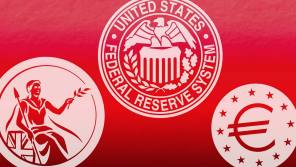

Baillie Gifford manager Stephen Paice has shrugged off concerns about a Brexit-induced tumble for Ryanair, claiming the airline has boosted its market share since the UK’s vote.
The company was among those hit by an aggressive sell-off as the EU referendum results emerged on June 24.
Chief executive Michael O’Leary was a strong supporter of the Remain campaign and even warned UK consumers ticket prices for his famed budget airline would increase in the event of a Leave vote.
However, Mr Paice, who co-manages the £186m Baillie Gifford European fund alongside Thomas Coutts, Moritz Sitte and Tom Walsh, said the airline – one of the portfolio’s top-five holdings at 3.8 per cent – had already started to outpace rivals in its recovery.
“One [holding] that suffered most during the Brexit vote was Ryanair, but that does well and the competition is going to struggle more,” he said.
“There are a lot of levers that a business like Ryanair can pull to continue to generate long-term value. It has the biggest and one of the youngest fleets, and it has lower maintenance and staff costs [than rivals].
“The cost gap between [the airline] and its competition is widening and it is taking more market share.”
Dublin-listed Ryanair’s share price fell from €13.70 on the day of the referendum to just €10.57 a few days later, but had recovered to €12.21 by October 3.
But it was the size of the current holding that was preventing the team from using the continued dip and add more of its favoured stock.
“We haven’t topped up at the moment,” Mr Paice said.
“It’s probably not a big enough move for us to want to top up, because it’s still a top-five holding. If there was any more angst or short-term worry in the market that led to a [bigger] reduction we probably would step in and buy more.”
Overall, Mr Paice and his co-managers, who focus on constructing an “all-weather portfolio”, have done little to react to the UK’s decision to leave the EU.
Instead, the team has taken profits on strong performers, including Adidas.
The global sportswear brand made up 3.9 per cent of the fund at the end of June, but Mr Paice said this was cut to 3 per cent by the end of August.
Problems at the firm – including a struggling golf business and difficulties growing in the US – had prompted the managers to up exposure around two years ago on a value play. But since management had taken measures to address a number of these problems, market valuations had caught up with the team’s thinking.
The Baillie Gifford team also sold out of Belgian retailer Colruyt Group earlier this year because diminished returns appeared likely.
Mr Paice explained. “We have had [Colruyt] for about six-and-a-half years. It has increased its market share in recent years, in part because it offers lower prices than other retailers in Belgium.
“But we think the competition over the next decade is going to be a lot tougher because of the introduction of companies like Aldi and Lidl.
“They have been there for a while, but they have stepped up their investment.”
The team is also closely monitoring developments from German biotech firm MorphoSys, which the fund invested in last year after comments from Hillary Clinton hammered global healthcare stocks.
“It produce antibodies that companies can use to develop their new drugs,” Mr Paice said.
“With [Mrs] Clinton talking about prices, the [MorphoSys share] price fell by about 50 per cent and we thought it was quite an attractive entry point. We think the company might start developing its own drugs, which would be much more profitable.”



